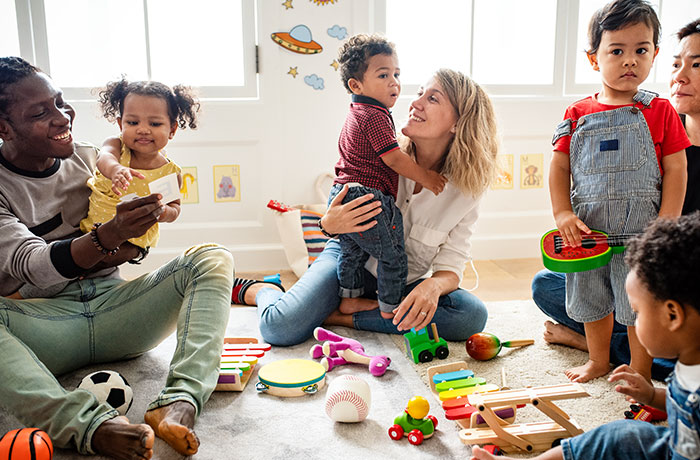This page explains how children and young people (aged 0 to 25) with special educational needs and without an education, health, and care (EHC) plan, can get extra support at the education setting they attend, some of your rights and where you can get more information and help.
The information on this page is taken from the SEND Code of Practice 2015.
It would be helpful to read the following leaflets for further information.
- EHC needs assessments
- Right of appeal to SENDIST
- Education, health, and care plans and looking through a draft EHC plan
What is SEN?
A child or young person has SEN if they find it harder to learn than other children or young people of the same age. A child or young person may find it difficult to learn because they have a learning difficulty or disability where they need SEN provision to be made for them.
There are four main areas of SEN
Your child or young person may have difficulty with some or one of the areas below:
- Communication and interaction: they may have difficulty in saying what they want to and/or understanding what is being said to them. They may find it difficult to make friends
- Cognition and learning: reading, writing, number work, understanding information, concentration and organising themselves or their things
- Social emotional and mental health difficulties: They may feel upset and/or angry which makes it difficult for them to learn
- Sensory and or physical needs: They might find it difficult to see, hear, be sensitive to touch and or noises. Other examples include difficultly with holding a pen/pencil, walking, or riding a bike
What is SEN Provision?
SEN Provision is education or training that is extra or different to the help that children and young people get, who are the same age as your child or your young person.
Examples of SEN provision
These might include:
- Changing the learning materials, for example, using special equipment in the classroom, special/larger font, dyslexia ruler, fidget toy/item, visual (with pictures) timetable, checklists (to help with organising)
- Extra help from a teacher/tutor or teaching/learning support assistant, to take part in all or some lessons/ activities, for example, the adult asking your child or young person questions to check their understanding before they start their work
- Support to move around the school or college, for example, to different lessons (using a photo book, a map or a buddy)
- Movement breaks or time out of the classroom
- Small group teaching to work on skills, for example, learning to take turns, make friends or help with maths and English
- Sessions with a Learning Mentor, for example, to talk through any concerns or worries during the school or college day
- Supporting independent or personal care skills, for example, eating or toileting.
- Advice and support from specialist professionals, for example, specialist teachers (to help with reading, writing and maths), Educational Psychologist (EP), Speech and Language Therapist (SALT)
The role of the SENCO
Every mainstream school (*maintained & academy) has a special educational needs co-ordinator (SENCO), who is responsible for organising extra or different type of help for pupils with SEN. The SENCO works with the class/subject teachers to plan the help each child or young person needs.
For colleges, there should be a named person in the college with an oversight of SEN provision to ensure co-ordination of support, similar to the role of the SENCO in schools.
SEN information report
Maintained schools and academies must publish a SEN information report about the SEN provision (help) that they provide. You can find this report on the school’s website. You can also ask the SENCO for information on the SEN provision made by the school.
How is SEN identified and extra or different help (SEN provision) put in place?
If you think your child or young person has SEN and may need SEN provision, it will be helpful to talk first to their class teacher/tutor or SENCO at their school or college.
If your child or young person has been identified with having SEN, the school or college, should do everything they can to meet their needs, so that they can fully take part in their education. This is called SEN Support, which is a four-part cycle of help.
The school or college will use money from its budget first, to try and provide the help your child or young person needs. Usually, school or colleges are required to spend up to £6000 on your child or young person.
How does SEN support work?
SEN support should be a ‘graduated approach,’ that means it should be done in steps which can be repeated if needed.
The four parts of the SEN support cycle are:
Assess
This is when your child’s or young person’s class or subject teacher along with the SENCO or named person, work together to understand their needs, using information from school or college assessments, work activities, observations, and experience of working with them.
During this assessment process, the school or college should get yours and your child or young person’s views and these should be recorded.
Sometimes school or college may ask an outside professional (who does not know your child or young person) to get specialist advice in understanding their needs and the help they require to meet these.
For example:
- Literacy & Numeracy Support Service
- Wandsworth Autism Advice Service (WASS)
- Behaviour Support Services
- Educational Psychologist
- Speech and Language Therapists
- Occupational Therapists
- Child and Adolescent Mental Health Services (CAMHS)
When the school or college asks a professional to see your child or young person, they should discuss and agree this with you first, if your child is under 16.
Assessments should be reviewed (see under Review) regularly, to make sure that the help being given to your child or young person, is meeting their needs, helping them to take part in their education and they are making progress at school/college.
Plan
Where it is decided to provide your child or young person with SEN Support, you must be told, if your child is under 16 (although you should have already been involved in discussions at the ‘Assess’ stage).
The teachers and the SENCO should in discussion with you and, your child or directly with your young person (if they are 16 or over) agree the following:
- The extra or different type of help to be put in place
- The likely impact on your child’s or young person’s progress, development, or behaviour
- The outcomes (what they will be able to do) wanted for your child or young person with the extra or different type of help provided
- A clear date for a review
All teachers or subject tutors and support staff that work with your child or young person, should be made aware of their SEN, the outcomes wanted, what support will be provided and how.
This should be recorded in the school or college information system. School or colleges can decide how they record the information above, they may record it on a SEN support plan, an Individual Education Plan (IEP), Provision map or another way.
Do
Your child’s or young person’s class or subject teacher remains responsible for working with them on a daily basis. However they should work closely together with support staff, (for example, teaching assistants who are providing the help) to look at the impact of this and how it can be linked to classroom teaching.
Review
Your child’s and young person’s SEN Support should be reviewed to see how well the SEN provision put in place has helped them to meet their outcomes. Yours and your child’s or young person’s views should be obtained, for the review. This review should take place at least three times a year with you if your child is under 16. Directly with your young person, if they over 16 (most parents are involved if your child is over 16).
These discussions should be with an adult who knows of and understands your child or young person’s needs and their progress. This could be their class teacher or form tutor, supported by the SENCO or named person (at college).
The review will decide if the SEN Support is:
- Helping them
- If their outcomes have been met
- If ongoing assessments have found other needs, and
- If changes need to be made to the next cycle of SEN support. This might include more or different type of help, including advice from specialist professionals(who the school or college have asked to come in)
Your child or young person may make good progress at the SEN support stage and the school or college can continue providing the help your child or young person needs within the school's or college budget.
What if progress is slow or not being made?
If your child or young person is not making enough progress with SEN support in place, the school, college, you or your young person, may decide to ask for an education, health and care needs assessment from the local authority.
This assessment can lead to an education, health and care (EHC) plan. Find out more information about EHC needs assessments.
Leaflet
You can download our leaflets:
For a quick read:
Where can I get more information, advice, or support about SEN support?
If you have more questions about SEN Support, you can:
- Speak to the SENCo at your child’s school or named person at their college
- Read Chapter 9, of the SEND Code of Practice 2015 (depending on your child’s or young persons’ age - please read Chapter 5, 6 or 7).
- Read section 3 and 4, of the Wandsworth SEND Handbook
- Read Ordinarily Available Provision Guide for parents/carers on support for children and young people without an EHC plan. You can also download translated versions of this guide in Polish, Somali, Portuguese, Arabic and Urdu
- Follow the link to the Independent Provider of Special Educational Needs Advice (IPSEA)
- Contact us

